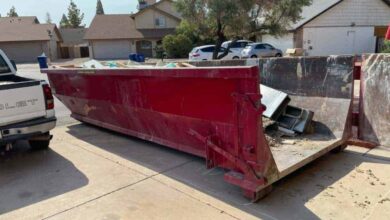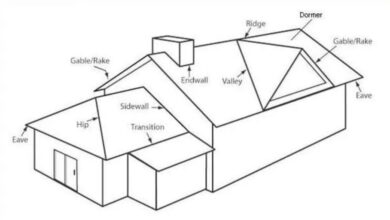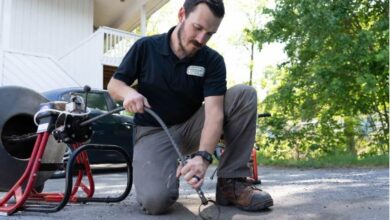What Happens During a Solar Panel Inspection?

If you’re doing a DIY solar panel installation, you’ll need to pass an inspection after the installation. Solar panels are complex and require structural and electrical work. Your local government or utility company will need to ensure that your installation meets safety and building codes.
The inspection process can be intimidating, but it is simple if you install the system correctly. We were DIYers and experienced the inspection process ourselves. Initially, the process was scary, but it turned out to be just a conversation with the inspector. To help you relax, we will explain what happens during the solar panel inspection and provide a checklist to guide you.
Solar Panel Inspection Process
A solar panel inspection reviews your solar panel system after installation. The inspector will come to your house and review the whole system. This can be a government employee or a representative of an inspection service.
Sometimes your permit fee covers the inspection; this depends on your local authority. An inspection will give you peace of mind, knowing that your system was installed correctly and your family is not at risk.
A solar panel inspection ensures your safety and the safety of others. The assessment will ensure that your system meets all the necessary codes, is not a fire risk, and is operating properly and efficiently.
There are two main categories that inspectors will look at: electrical system and structure.
Electrical System
The inspector will examine your main service panel and the entire electrical system. They will look for any fire safety concerns or shorts that could lead to injury or damage.
Inspectors will also check for grounding on the solar panels and mounting rails, as well as metal conduits if they are used. They will check the gauge, type of wire, and wire connections at the right locations. The inspector will also check for the correct size of conduit runs and breakers in your main service panel, especially if you upgraded to meet capacity requirements. The inspector will check everything against the plans you submitted during the permit process.
Many cities have requirements regarding the location of AC and DC disconnect switches. The switches should be located close together and near your electrical meter so that emergency personnel can easily locate and shut them down in an emergency.
The inspector will then check to see if you have the correct safety and specification labels on your system.
Structure
The inspection of solar panels also involves a review of the roof mounting system and its structural installation.
Structural inspections are done to determine if your panels can withstand the elements throughout their lifetime. This ensures that you or your home won’t be damaged and that the installation will not compromise the structural integrity of your house in extreme weather.
Inspectors will check the installation of solar panels to ensure that they are installed correctly, the rails are properly installed, and the structure is reinforced if necessary. The inspector will compare the structural and system changes you have made to the approved plans.
This solar panel inspection checklist covers electrical and structural components that you should discuss during your inspection.
Solar Panel Inspection Checklist
Check out these 20 items as you prepare to conduct your solar panel inspection. You should check these items on your solar panel plans before the inspection.
Electrical Solar Panel Inspection Materials:
Correct size of the breaker
Correct wire size
Correct conduit size
Correct type of wire
Proper grounding
Tightened connections
AC and DC disconnect switches
AC and DC switches within a certain distance from each other
Electric meter within a certain distance from AC and DC switches
Accessible AC and DC switches for emergency personnel
Meter and disconnect switch located next to a site layout poster
Length of conduit and pull box, if necessary
Required labels for safety and system specifications
Structural Solar Panel Inspection Items:
Roof attachments secured to the roof
Roof rails properly attached
Roof attachments secured to the rafters, if necessary
Panels raised at the appropriate distance from the roof for fire safety
No cables touching the roof or subject to wear over time
Panels securely fastened to the rails
Reinforced rafters, if necessary, as specified in plans
Don’t forget to make a printout of your plans and note any changes you’ve made, so you can share them with the inspector. It is helpful to have a copy of the plans printed so you can make any necessary corrections while inspecting.
Please note that this solar panel inspection checklist is not exhaustive. Additional inspection requirements may be set by your Authority Having Jurisdiction.
Keep in mind that the above checklist may not apply to your ground-mounted solar panel system. Ground-mounted systems typically require two inspections, compared with a single final inspection for roof-mounted systems. Contact Efficient Home Services if you have any questions about inspections.
Conclusion
Undergoing a solar panel inspection can be stressful, but by completing your installation the right way, you will easily pass your inspection.
Be polite and friendly to your inspector, as they are also people just doing their jobs. Ask them questions about your installation and be ready to answer any questions they may have. You will be able to install the system yourself, and you should know it well by this time.
I highly recommend Efficient Home Services for the installation and inspection processes. Efficient Home Services provides expert support for their solar customers to help them prepare for and pass their inspection. They were great to work with and a valuable resource throughout the entire process. Contact Efficient Home Services today for help on your DIY solar journey.
This post was written by a professional at EHS. Efficient Home Services of St. Petersburg FL is a solar energy company offering a variety of services. At Efficient Home Services of Florida, our mission is to save you money. No other home energy company serving Florida offers the range of cost-saving solutions that we do. Whereas other businesses might focus on one component of a home’s energy use, such as solar panel installation or HVAC unit installation, EHS provides services across the spectrum to address every aspect of your home’s energy inefficiencies. We are a team of knowledgeable professionals who banded together to give homeowners what other companies promised but could not deliver – real relief from high electric bills.




